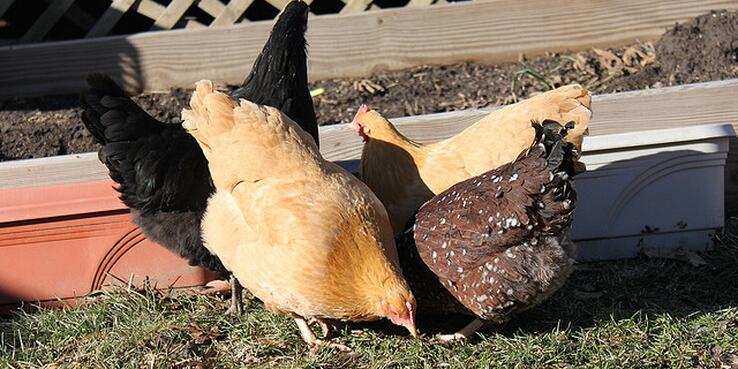It’d be unthinkable to ban dogs, cats, and many other types of pets in cities. But if you want to raise other types of animals (like chickens, ducks and rabbits) for their eggs or meat, you might run into a lot more regulation.
How much more regulation was a hot topic at a recent community meeting about urban agriculture hosted by the Oakland Planning Department. Nearly 300 people turned out to debate the laws around backyard animal husbandry.
Currently in Oakland, gardeners who want to sell what they grow must get a relatively expensive conditional use permit. And, by the planning department’s own admission, rules about raising animals for personal consumption are vague and contradictory. Oakland is in the process of updating its code. The cost and regulations of cultivating plants is moving toward a simpler, less-expensive regulation. But on the issue of animals, there was little resolution.
Though San Francisco recently updated its urban agriculture zoning code, it did not change the existing rules regarding raising animals. Seattle, in contrast, had a lively debate over the proper place for roosters, ultimately banning them from backyards. At the hearing in Oakland, it was clear that the regulatory discussion had become, for some, a venue for debating the morality of raising animals for meat — whether in cities or elsewhere.
Where Oakland’s process ends up is to be seen, but the community meeting was another demonstration that Bay Area cities are beginning to grapple with urban agriculture at a policy level. Pushed by popular demand, local governments now face the question of how to reincorporate agriculture activities into municipal codes that pushed them out of the city decades ago.
